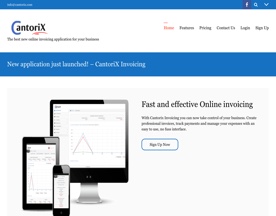Ah, the vast world of accounting! From the time of the ancient civilizations of Mesopotamia, where they used clay tokens for bookkeeping, to the Renaissance era when Luca Pacioli, the father of accounting, introduced the double-entry system, accounting has been an evolving field. Fast forward to the 21st century, and we’re witnessing another transformative phase – the integration of Artificial Intelligence (AI) into ai accounting tools. Welcome to the age of Accounting AI.
Accounting AI is revolutionizing the financial world by automating tasks, ensuring accuracy, and providing intelligent insights. Dive into how AI is reshaping the accounting landscape.
Now, when I mention “AI,” a few of you might conjure up images of sci-fi movies with robots taking over the world. Relax! The world of accounting isn’t turning into a Hollywood movie set. Instead, imagine a world where financial data entry happens in the blink of an eye, where balance sheets and profit & loss statements analyze themselves, and where predicting future financial trends is not just wishful thinking but an everyday reality. That’s what Accounting AI brings to the table.
But before we dive deep, let’s get our basics right. Artificial Intelligence, at its core, is about machines being able to carry out tasks in a way that we would consider “smart” or “intelligent.” In the context of accounting, this means automating tasks that were previously manual, providing real-time analysis, and even offering predictive insights. And no, it’s not magic; it’s just brilliant technology.
You might wonder, “Why the sudden buzz around Accounting AI?” Well, in today’s rapidly changing business environment, the demand for real-time financial data and insights is growing. Companies no longer want to wait for month-end expense reports alone. They want insights now. And this is where AI comes in, acting as the bridge between traditional accounting practices and modern-day business needs.
For accounting professionals still in the field, this is both exhilarating and, perhaps, a tad bit intimidating. The landscape of ledgers, journals, and balance sheets is getting a digital makeover. But, instead of seeing it as a challenge, I see it as an opportunity. An opportunity to enhance our skills, to bring more value to our organizations, and to be at the forefront of a significant industry transformation.
Here’s a fun fact: according to a report by Forbes, businesses using AI for accounting have witnessed a 45% reduction in business costs. Now, that’s a number hard to ignore!
As we journey through this post, I hope to shed light on the myriad ways Accounting AI is reshaping the industry. Whether you’re a seasoned accountant, a business owner, or just a curious soul, there’s something in here for you. So, buckle up, and let’s navigate the future of accounting together!
Key Points:
- Accounting has evolved from ancient civilizations to the modern era.
- AI in accounting is about smart automation, real-time analysis, and predictive insights.
- The shift to AI is driven by the demand for real-time financial data.
- Professionals should view this as an opportunity, not a challenge.
- Businesses are already reaping significant benefits from integrating AI into accounting.

How is AI Transforming Accounting? Delving Deep into the Modern Revolution
Ah, the marvels of technology! Just when we thought accounting had reached its zenith with modern software and tools, AI steps in, promising to take things up a notch. So, let’s dive deeper and see how AI is truly leaving its mark on the accounting world.
Automation of Tasks: Beyond the Mundane
At the heart of AI’s transformational power in accounting is its ability to automate tasks. Remember those days when data entry felt like an unending chore? Or when reconciling invoices felt like finding a needle in a haystack? Well, those days are becoming a thing of the past, thanks to AI.
For instance, consider the task of entering data from hundreds of invoices into an accounting system. AI-powered tools can now scan these invoices, extract relevant data, and populate the full ai accounting software system without human intervention. But it’s not just about speed. It’s about freeing accountants from mundane tasks and allowing them to focus on more strategic, value-added activities. Think of it as giving accountants a superpower – the power of time!
Enhanced Accuracy: Bid Adieu to Human Errors
Let’s face it: humans, no matter how meticulous, are prone to errors. A missed decimal point here, an extra zero there, human error there, and suddenly financial statements are skewed. But AI, once trained, maintains a consistency that’s hard for humans to match.
By leveraging machine learning, AI systems learn from historical data and past mistakes. Over time, they improve their accuracy, ensuring that the probability of errors diminishes. And unlike humans, AI doesn’t suffer from post-lunch lethargy or Monday morning blues. It’s always on point, ensuring that financial data remains accurate and trustworthy.
Predictive Analysis: Gazing into the Financial Crystal Ball
This is where things get really exciting. Gone are the days when accountants merely reported on past financial performance. In today’s dynamic business world, there’s a pressing need to look ahead, predict future trends, and prepare for the future. Enter AI.
By analyzing vast amounts of historical financial data, AI can identify patterns and trends that might be invisible to the human eye. Using this data, it can make predictions about future revenue, expenses, and even potential market opportunities. For businesses, this means being proactive rather than reactive, making informed decisions, and staying ahead of the competition.
Imagine being able to forecast a cash flow shortage months in advance or predicting a surge in demand for a product. With such insights, businesses can strategize effectively, manage resources, and seize opportunities. It’s like having a financial crystal ball, all thanks to AI.
Personalized Financial Insights: Making Data Talk
One of the lesser-discussed but immensely powerful applications of AI in accounting is personalization. By analyzing financial data, AI can provide personalized insights tailored to a business’s unique needs. Whether it’s highlighting inefficiencies in a supply chain, identifying underperforming products, or suggesting optimal pricing strategies, AI can offer bespoke advice that can be a game-changer for businesses.
Key Points:
- Automation via AI is revolutionizing data entry and reconciliation tasks.
- AI ensures unparalleled accuracy in financial data processing.
- Predictive analysis by AI helps businesses strategize and stay ahead.
- Personalized insights allow businesses to make data-driven decisions tailored to their unique needs.

Software Tools Revolutionizing Accounting with AI: A Closer Look at the Game Changers
The marriage of accounting and AI has given birth to a new breed of software tools. These aren’t your typical accounting platforms. They’re smarter, faster, and tailor-made for the modern business landscape. They incorporate natural language processing (NLP) techniques that let AI algorithms recognize and process massive amounts of data, bringing automated ease to creating financial statements, agreements and regulatory documents. Let’s delve deeper into some of these revolutionary tools and understand why they’re making waves in the accounting industry now.
QuickBooks Online with AI Assistance: The Familiar Gets Smarter
Most of us are familiar with QuickBooks, the ubiquitous accounting software. But did you know that its latest online version comes with AI enhancements? It’s like giving an old dog some impressive new tricks.
With AI integrated, QuickBooks Online can now automate tasks such as categorizing expenses, predicting cash flow, and even flagging potentially erroneous transactions. The beauty lies in ai technology and its seamless integration. Users might not even realize they’re interacting with AI, but they’ll certainly notice the reduced manual entries, the smart suggestions, and the real-time insights.
Moreover, QuickBooks Online with AI also offers personalized business insights. Based on your financial data, it can provide tailored advice on optimizing expenses, managing inventory, or even expanding into new markets. It’s not just an accounting tool anymore; it’s a business advisor.
Xero: Learning as it Goes
Xero, another popular accounting software, has taken a deep dive into machine learning. One of its standout features is its ability to auto-categorize bank transactions. Now, this might sound simple, but anyone who’s ever spent hours categorizing bank statements knows the real pain.
Here’s where Xero shines. Over time, as it processes more transactions, it learns. If you frequently label a particular vendor as “Office Supplies,” Xero will remember and auto-categorize future transactions from that vendor accordingly. It’s continuously learning from user behavior, making the software smarter and more intuitive with each use.
Pabbly: Predicting the Subscription Economy
In today’s digital age, subscriptions are king. From software-as-a-service (SaaS) to monthly box subscriptions, businesses are increasingly moving towards recurring revenue models. And Pabbly is the accounting tool tailor-made for this subscription economy.
What sets Pabbly apart is its AI-powered predictive analytics. By analyzing past subscription data, Pabbly can forecast future billing trends, churn rates, and even potential upsell opportunities. For businesses that rely on recurring revenue, such insights are gold. It allows them to strategize, allocate resources, and ensure that the subscription engine keeps humming smoothly.
Bonus Mention: Sage Intacct – AI for the Enterprise
While we’re on the topic, it’s worth mentioning Sage Intacct. Designed for larger enterprises, this cloud-based financial management software uses AI to offer advanced functionalities. Think automated anomaly detection in financial data, real-time financial dashboards powered by AI, full expense management software and even AI-driven audit trails. It’s a testament to how AI is not just for small businesses but is also reshaping enterprise-level accounting.
Key Points:
- Modern accounting tools are integrating AI to offer enhanced functionalities.
- QuickBooks Online uses AI for smart suggestions and real-time insights.
- Xero leverages machine learning for intuitive transaction categorization.
- Pabbly provides predictive analytics tailored for the subscription economy.
- Sage Intacct showcases the potential of AI in enterprise-level accounting.

FAQs: Unraveling the Mysteries of Accounting AI
Navigating the world of Accounting AI can sometimes feel like you’re decoding an enigma. But fear not! Here, we’ll tackle some of the most burning questions surrounding this fascinating merger of finance and technology.
1. Will Accounting AI replace human accountants?
The million-dollar question! While AI is powerful, it’s essential to understand that it acts as an enhancer, not a replacer. The nuances, judgment, and expertise that human accountants bring to the table are irreplaceable. Accounting AI is designed to handle repetitive tasks, analyze vast amounts of data quickly, and provide predictive insights. Accountants can then leverage these insights to offer strategic advice, build relationships, and drive business growth. So, in short, AI complements accountants; it doesn’t replace them.
2. How reliable is AI in handling sensitive financial data?
A valid concern. After all, financial data is the lifeblood of any business. AI systems, especially those designed for accounting and invoice processing, prioritize data security. Once trained, these systems are incredibly consistent in processing data. However, as with any system, it’s crucial to ensure regular updates, maintain robust cybersecurity measures, and train the AI with accurate data to ensure reliability.
3. Can small businesses benefit from Accounting AI?
Absolutely! In fact, small businesses might find Accounting AI to be a game-changer. With typically tighter resources and the need for agility, AI can help automate tasks, save time while reducing overhead costs. Furthermore, the predictive insights provided can be invaluable for small businesses looking to grow and compete in the market.
4. Is implementing Accounting AI expensive?
Not necessarily. While there are enterprise-level solutions that come with a hefty price tag, many AI-enhanced accounting tools are quite affordable. Moreover, the long-term benefits – time saved, errors reduced, and insights gained into financial processes – often outweigh the initial investment.
5. How steep is the learning curve for these AI tools?
Most modern AI-powered accounting tools prioritize user-friendliness. Developers understand that not every accountant is a tech whiz. With intuitive interfaces, guided tutorials, and responsive customer support, many find the transition to be smoother than anticipated.
6. Can AI predict financial crises?
While AI is potent, predicting global financial crises is a complex task that involves numerous variables. AI can analyze patterns and offer predictions based on historical data, but factors like geopolitical events, policy changes, and global pandemics can be challenging to forecast. However, on a micro-level, AI can certainly warn businesses about potential cash flow issues or market challenges.
7. How do I know if my business is ready for Accounting AI?
If you find yourself overwhelmed with manual data entry, if you’re seeking deeper financial insights, or if you’re looking to future-proof your tax compliance and accounting processes, it might be time to explore AI options.
8. Are there any ethical concerns with using AI in accounting?
Like any technology, AI can be used ethically or misused. It’s essential for businesses to use AI transparently, especially when it comes to financial data. Regular audits, understanding AI decision-making processes, and ensuring data privacy are crucial.
9. Will AI integration affect auditing processes?
Indeed, it will. Auditors will not only review financial data but also the algorithms and processes of the AI systems in use by accounting firms. It adds an additional layer of assurance that the AI is functioning correctly and ethically.
10. How can I stay updated with the latest in Accounting AI?
The world of AI is ever-evolving. Subscribing to industry journals, attending webinars, joining professional groups focused on AI in accounting and finance, and of course, keeping an eye on software updates can help you stay abreast of the latest developments.
Key Points:
- AI enhances accountants’ capabilities; it doesn’t replace them.
- Data security and reliability are top priorities in AI systems.
- Both small and large businesses can benefit from Accounting AI.
- Ethical use and regular audits are essential when integrating AI.
- Staying updated with industry trends ensures you leverage the best of Accounting AI.

Conclusion (Embracing the Future)
Look, the world of finance and accounting is evolving, and AI is at the forefront of this change. For businesses and accountants, this isn’t a threat but an opportunity. An opportunity to automate tedious accounting tasks further, ensure unparalleled accuracy, and gain insights that were previously unimaginable.
If you’re in the financial sector, now’s the time to embrace this change. Equip yourself with the knowledge and tools that leverage AI. Remember, it’s not about the technology itself but how you use it to bring about positive transformations in financial operations in your domain.
And for those apprehensive about AI taking over, don’t be. As with any tool, AI is only as good as the hands that wield it. It’s here to assist, not replace. So, let’s welcome the future of finance and accounting professionals with open arms and open minds.















